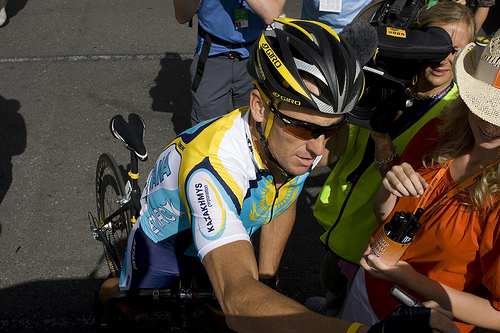Keep your eyes open to your mercies. The man who forgets to be thankful has fallen asleep in life.
Fall is my favorite time of year. Maybe it’s the cold weather or change of seasonal color. Or it could be the beginning of the holiday season/year-end which gives us an opportunity to remember the past while reflecting on where we’re at and where we want to go. Being thankful should be an everyday thing, not just a reason to watch football and go into a food coma (which I did). Hope you had a great Thanksgiving. And if you didn’t stop between bites of turkey or tossing the football around outside, here are seven things to be thankful for today:
Health: You can have cash, material goods, great relationships and an awesome job, but poor or failing health can prevent you from enjoying any of these things. You might know someone (or have gone through) serious illness or a debilitating injury. We tend to take our health for granted. When you’re younger, you eat, drink and do stupid things thinking you’re invincible. If you woke up this morning with the normal middle-aged joint creaks only, consider yourself fortunate.
Friends: As you get older, what were once close relationships start to fade. The daily demands of work and family begin to take away time once saved for “hanging out.” Some of my best childhood memories stem from summertime, riding bikes with friends and playing some kind of sport at the park. Even if you only have one friend who would drop everything to help you, then consider yourself blessed.
Family: You can’t turn the TV on without watching some sort of family reality show. Families can be crazy, dysfunctional and unusual. But they’re still family. So much of what affects and influences us begins with home base. If your home or family life is constantly tumultuous, then you’re already at a disadvantage when you step out the door each day. However, if you have great family relationships, if you have people who love and care about you, then you have a solid base to stand on.
Pets: After years of talking, we finally got a puppy earlier this year. I love animals but now I see how people can become really attached to a pet, be it a dog, cat, rabbit, hamster, etc. When I get home from work, my dog doesn’t care that I blew a big presentation or had an overall lousy day. Without fail he comes to the door, tail wagging, happy to see me – and it helps me forget about all of the bad stuff that might have occurred that day. You can’t beat unconditional love.
Job: Call it a j-o-b, career, vocation, calling or entrepreneurial endeavor, if you’re doing something that’s providing you with income, be thankful. Even if you can’t stand where you’re at right now, there’s someone out there who wishes they were you. Extra bonus if you have great co-workers whom you can laugh with and count on when things get stressful or overwhelming. Double bonus if you’re doing work that you love or are passionate about.
Basic Needs: Did you wake up this morning (or are going to sleep tonight) in a warm bed with a roof over your head? How about a warm meal? Electricity? Running water? Like many Americans, I followed the (still) ongoing tragedy of Hurricane Sandy. Like any basic necessities we take for granted, we don’t miss it until it’s gone. One day the people on the East Coast are going about their daily routine, next minute they’re standing in twelve-hour lines for gas and supplies.
Choice: Everyday that we get up, we have the power of choice. The ability to choose our own path and life direction. Quit a job we dislike. Stop smoking. Meet new people. Read a book to expand our knowledge. Identify new goals. Whatever it is, we have the power to stop, start, modify or reverse our life at anytime. That’s incredibly powerful if you think about it. Something to be thankful for.










